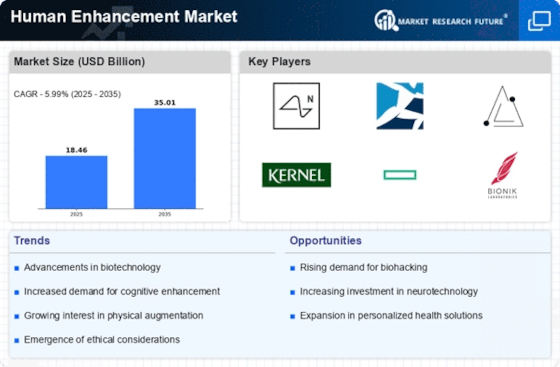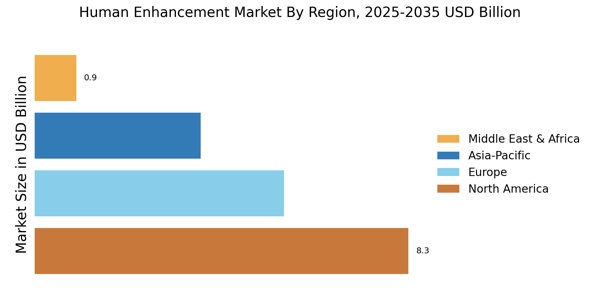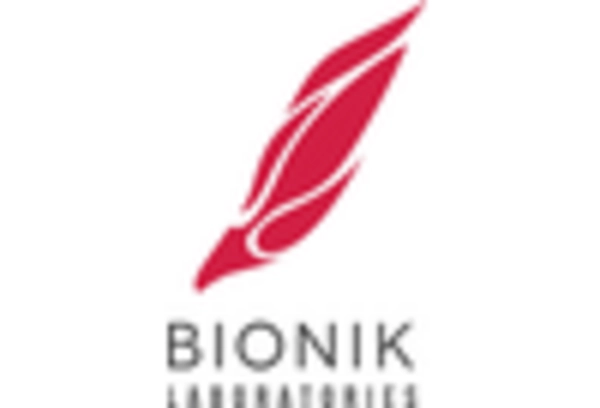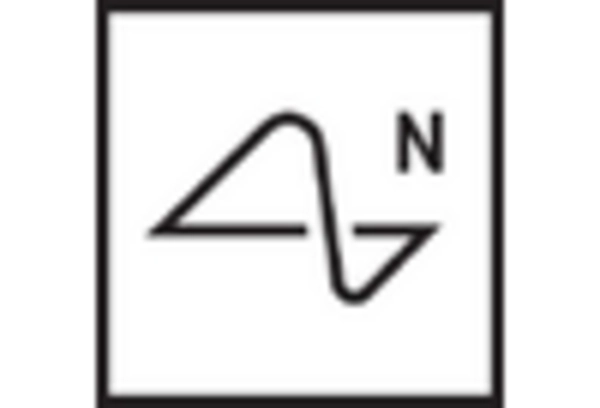Increased Focus on Mental Health
The Human Enhancement Market is increasingly addressing mental health, reflecting a broader societal recognition of its importance. With rising awareness of mental health issues, there is a growing demand for enhancements that support cognitive well-being. Products such as neurofeedback devices and cognitive enhancers are gaining traction, as consumers seek solutions to improve focus, memory, and overall mental resilience. Market Research Future indicates that the mental health technology sector is projected to grow significantly, with estimates suggesting a compound annual growth rate of over 30%. This trend underscores the potential for the Human Enhancement Market to innovate and expand its offerings in mental health enhancement.
Regulatory Support and Frameworks
The Human Enhancement Market is benefiting from evolving regulatory support and frameworks that facilitate innovation. Governments are increasingly recognizing the potential of human enhancement technologies to improve public health and productivity. This has led to the establishment of guidelines and policies that encourage research and development in the sector. For instance, regulatory bodies are streamlining approval processes for new enhancement products, which may accelerate market entry. As a result, the Human Enhancement Market is likely to experience a boost in the introduction of novel solutions, fostering a competitive environment that drives further advancements.
Rising Investment in Biotechnology
The Human Enhancement Market is experiencing a surge in investment, particularly in biotechnology. This influx of capital is driven by the increasing demand for innovative solutions that enhance human capabilities. In recent years, venture capital funding for biotech firms has reached unprecedented levels, with estimates suggesting a growth rate of over 20% annually. This financial support enables companies to develop cutting-edge technologies, such as gene editing and synthetic biology, which are pivotal in the enhancement of human performance. As a result, the Human Enhancement Market is likely to witness a proliferation of products aimed at improving physical and cognitive abilities, thereby attracting a broader consumer base.
Aging Population and Health Concerns
The Human Enhancement Market is significantly influenced by the aging population and associated health concerns. As life expectancy continues to rise, there is an increasing focus on maintaining quality of life among older adults. This demographic shift has led to a heightened demand for enhancements that can improve health outcomes, such as cognitive function and physical mobility. Market data indicates that the segment of the population aged 65 and older is projected to double by 2050, creating a substantial market for products that address age-related decline. Consequently, the Human Enhancement Market is poised to expand as companies innovate solutions tailored to this growing demographic.
Integration of Artificial Intelligence
The integration of artificial intelligence (AI) into the Human Enhancement Market is transforming the landscape of human capabilities. AI technologies are being utilized to develop personalized enhancement solutions, ranging from cognitive training applications to advanced prosthetics. The market for AI in healthcare is expected to reach over 36 billion dollars by 2025, indicating a robust growth trajectory. This technological advancement not only enhances the efficacy of human enhancement products but also fosters a more tailored approach to individual needs. As AI continues to evolve, the Human Enhancement Market is likely to see an influx of innovative products that leverage machine learning and data analytics to optimize human performance.

















